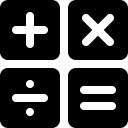A few days ago I was having a coffee with a couple of bingo-fanatic relatives. Sure enough, after detailing every single winning session from recent memory, they started discussing “winning bingo tactics.”
Can You Increase the Chances of Winning?
Isn’t bingo just like lottery, in which it makes no difference which numbers you choose because each of them is as likely to come? Therefore, in order to have more chances to win, you need more combinations that can match the winning numbers, or in other words, more bingo cards?
I couldn’t help but doing some research on the subject once I got home. Have people actually “invented” bingo systems? Is there something I’m missing? How likely are you to win at bingo anyway?
I found out that there are ways you can improve your chances of winning at bingo. None of them, however, have anything to do with selecting a sequence of numbers that would be more likely to win than others.
So let’s debunk that myth first.
Winning Bingo Systems
There’s absolutely no way of choosing numbers that are more likely to come than others. There are bingo systems, sure, but none of them give you an advantage any different than if you were to choose the numbers at random. Here are a couple of them:
Granville’s System
One of the most famous systems was invented by Joseph E. Granville, a mathematical analyst known for bold predictions in the investment world, and who had ‘The Granville Market Letter’ that “is at the bottom of the Hulbert Financial Digest’s rankings for performance over the past 25 years – having produced average losses of more than 20 percent per year on an annualized basis,” according to Wikipedia.
Granville advises you to choose bingo numbers that make the card symmetric and systematic. Here’s what a perfectly symmetric card needs:
- A balance of odd and even balls.
- A balance of high and low balls.
- The card needs to have a the same quantity of numbers ending in 1, 2, 3, 4, and so on. (For instance, 21, 32, 43, 54, 65…)
Granville says that if you truly understand probability, you also understand why it makes sense to choose numbers this way. He reasons that in the long run, you’ll get an equal amount of high and low numbers, an equal amount of odd and even numbers, etc. so it makes sense to use them as your bingo numbers.
But this makes no sense. Of course you’re going to have the same amount of odd and even (or high and low) numbers in the long run – in fact, that’s exactly the point. Each number is equally likely to come and therefore they’re dispersed equally in the long run, however, they’re also equally likely to come in your next bingo game. Every number has an equal chance to come.
Granville has written a book called How to Win at Bingo.
Tippett’s System
L. H. C. Tippett suggests that, in a 75-number game for example, the longer the game goes on, the closer to 38 (the median number) you should go for. So in early stages, you’re going to have more numbers closer to 1 and 75, and in later stages the numbers are going to be closer to 38.
Tippett instructs you to use numbers close to 1 and 75 in shorter games (and numbers close to 38 in longer games). But even if this would be advisable to do (it makes no difference), how can you predict whether the game is going to be long or not?
There’s no sensible logic behind Tippett’s theory.
Other Systems
Any system that includes a certain way to pick numbers, a sequence of numbers or any sort of prediction regarding which numbers are going to come or in what order won’t work.
How to Increase Chances of Winning
Even though it’s impossible to predict bingo numbers, and there’s no skill factor against other players like in poker games, you can still increase your chances of winning at bingo by selecting your games carefully, buying more bingo cards and selecting the right cards .
So how can you win at bingo more often?
- Buy the maximum amount of cards.
Although it should be added that buy the maximum amount that you can keep track of. - Buy cards in discount packages.
Always ask for quantity discounts and use them; you’ll save money right there and much more in the long run. - Play in games with fewer competitors.
The less competitors, the more chances you have to win, simple as that. Find out which nights and games draw less people. - Join bingo clubs.
Get tips from experienced players who likely have inside information on the best games nearby. - Get bingo bonuses.
If you play online at bingo sites like Downtown Bingo, you receive a bonus for the deposit that you’ve made.
Using the bingo tips above will help you to win more money. They may sound like simple “how to win at bingo” tips, however, they’re about the only thing you can do to increase your chances in a game like bingo in which you’re unable to predict or influence the outcome – only the setting.
Odds of Winning at Bingo

Suggesting all players buy the same amount of bingo cards, each player is as likely to win as the other one. So if 20 players entered a bingo game and each one had two bingo cards, your odds of winning would be 19:1, so you would win with a 5% probability.
On the other hand, if all the other players were to buy one bingo card and you bought four of them, your odds of winning would be about 5.8:1 and your probability of winning 17%.
That’s how big of a difference the amount of cards you buy can make.